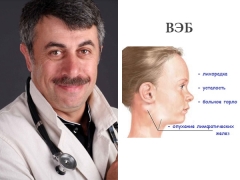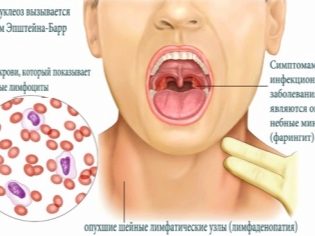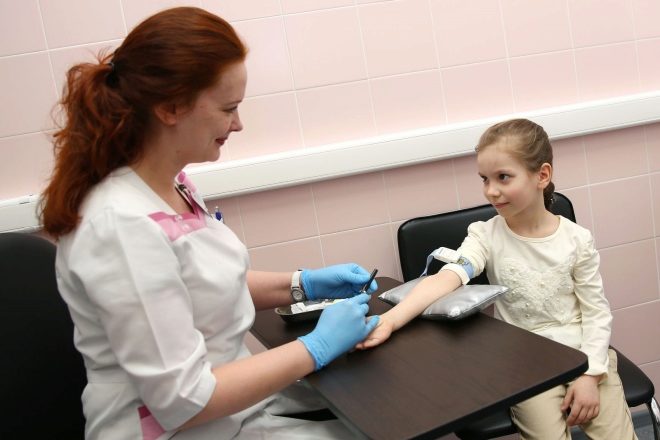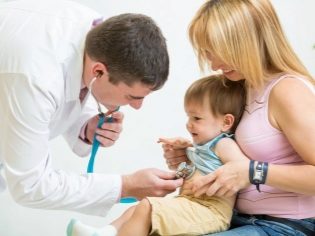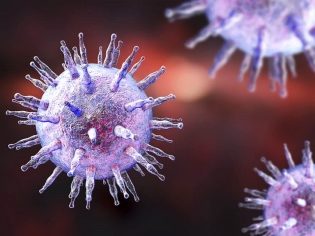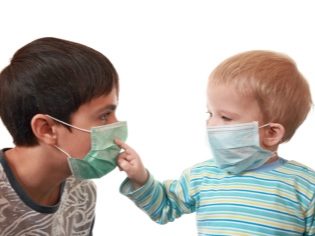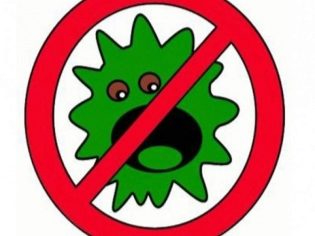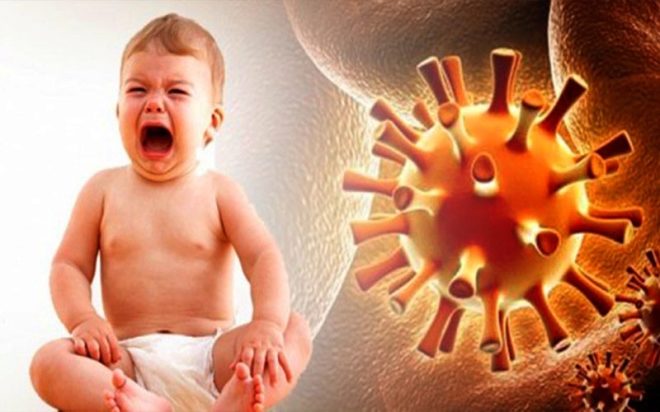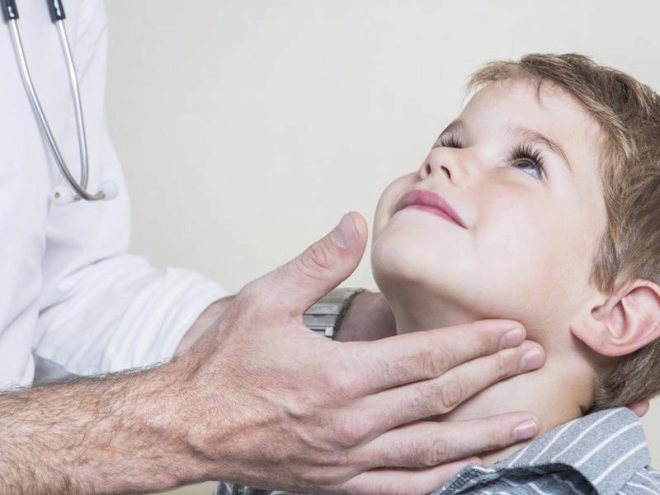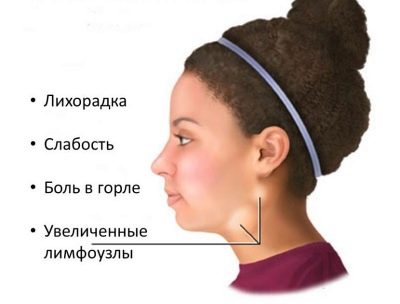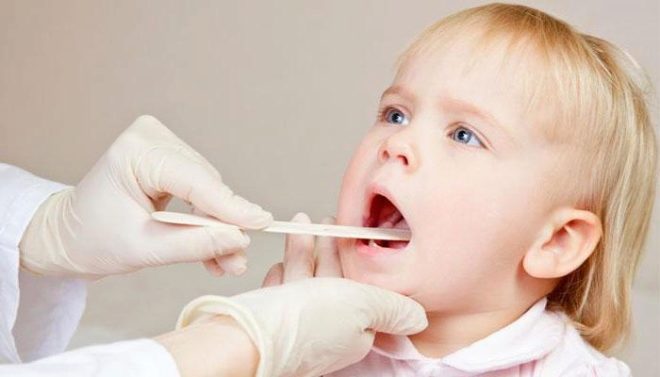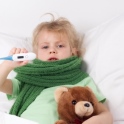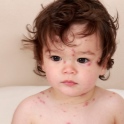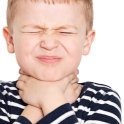Dr. Komarovsky on Epstein Barr virus in children
The most common diseases among children are viral. The reason is that the child’s immunity is not yet strong enough, immature, and it is not always easy for him to withstand numerous threats from the outside. But if much is said and written about the flu and chickenpox, and mothers are more or less clear with measles, that is, in this world there are viruses, some of which have a holy terror on their parents.
One of these little-studied and very common - Epstein-Barr virus. About him quite often ask the famous pediatrician and TV host Yevgeny Komarovsky.
What it is
VEB - Epstein Barr virus. One of the most common viruses on the planet. It was first found in tumor samples and described in 1964 by the English professor Michael Epstein and his assistant Yvonne Barr. This is a herpes virus of the fourth type.
According to medical statistics, traces of the infection are found in blood tests of half of children aged 5-6 years and in 97% of adults, and they themselves often do not even realize this, because EBV is unnoticeable, without symptoms, for most people.
The most favorite habitat of the virus is lymphocytes, so it affects the child’s immune system. Most often this microscopic particle-parasite causes cytomegalovirus, infectious mononucleosis, Hodgkin's disease, hepatitis, herpes, Burkitt's lymphoma and a number of other unpleasant diagnoses. Vaccines for this disease have not yet been invented, because at different stages of their development, the virus drastically changes its protein composition and the best scientific minds simply do not have time for it.
A child can become infected in different ways. Most often, EBV is excreted with biological fluids, usually with saliva. For this reason, infectious mononucleosis caused by a virus is called "kissing disease."
Infection can occur during the transfusion of blood and its components, through things shared with the patient and toys, and the virus is transmitted from an infected mother through the placenta to the fetus during pregnancy. EBV is easily spread by airborne droplets, as well as from the donor to the recipient during bone marrow transplantation.
At risk - children under one year of age who are actively exploring the world through their mouths, trying to try on a tooth absolutely all objects and things that come to hand. Another “problem” age is children from 3 to 6 years old, who regularly attend kindergarten and have numerous contacts.
The incubation period is from 1 to 2 months, after which children develop bright symptoms characteristic of many viral infections.
However, the virus with a complex name is not so terrible as the fact that its consequences are completely unpredictable. It can pass completely unnoticed in one child, and in another it will cause the development of severe conditions and even oncological diseases.
Komarovsky about VEB
Yevgeny Komarovsky urges parents not to create unnecessary hysteria around the Epstein-Barr virus. He believes that most of the children have already met with this agent in early childhood, and their immunity “remembered” him and is able to identify and resist.
And now we will listen to doctor Komarovsky about an infectious monokuleze.
The symptoms that make VEB suspicious in a child are rather blurred:
- Irritability, tearfulness, increased moodiness and frequent causeless fatigue.
- Slight or more marked swollen lymph nodes. Most often - submaxillary and zaushny. If the infection is severe, it is all over the body.
- Lack of appetite, digestive problems.
- Rash.
- High temperature (up to 40.0).
- Pains in throat (as with sore throat and pharyngitis).
- Severe sweating.
- Slight increase in the size of the liver and spleen. In a child, this can manifest as aching pains in the abdomen.
- Yellowness of the skin. This symptom is extremely rare.
Komarovsky emphasizes that on the basis of complaints alone and the presence of certain symptoms, it is impossible to make a diagnosis, since the child’s condition will resemble angina, and enterovirus, and lymphogranulomatosis.
To confirm or refute the Epstein-Barr virus, laboratory diagnosis of patient's blood samples is required, including biochemical analysis, serological testing, PCR, and it is also desirable to make an immunogram and conduct an ultrasound examination of the abdominal cavity organs - the liver and spleen.
Komarovsky often compares VEB with chickenpox. Both diseases are more easily tolerated at an early age; the younger a person is, the simpler the disease is and the fewer the consequences. The more the primary infection occurs in older adults, the greater the chances of severe complications.
Treatment according to Komarovsky
Yevgeny O. warns that treatment antibiotics penicillin group of one of the EBV-associated diseases - infectious mononucleosis can cause severe complications. Usually such an appointment is erroneous when the doctor takes mononucleosis for normal bacterial sore throat. In this case, may develop exanthema.
According to Yevgeny Komarovsky, ordinary children who do not suffer from HIV and other severe disorders of the immune system do not need any antiviral treatment for mononucleosis caused by EBV, and even more so they don’t need to give immunostimulants as a matter of urgency. The famous pediatrician is confident that the child’s body is able to cope with this threat on its own.
If the course of the disease is severe, which, according to Komarovsky, is very rare, treatment in inpatient settings may be required. There, most likely, drugs of the antiherpetic group will be used (quite justifiably).
In all other cases, symptomatic treatment is sufficient. This includes antipyretic agents (if the temperature is above 38.5-39.0), agents that reduce sore throat (lozenges, antiseptics, gargles), ointments, gels, and external sprays with antiseptics for severe skin rashes.
Tips
- Best prevention Epstein-Barr virus children have a good habit of washing their hands more often and not licking everything that is bad.
- In cold seasons, especially in the period of increasing incidence of viral infections, parents should take care not to use a “wonderful” antiviral drug to drink their child, but rather to be less in crowded places where, besides the flu viruses, you can it is easy to "catch" and the Epstein-Barr virus.
- Hardening, walks in the fresh air, good nutrition, rich in vitamins can protect a child as well as an expensive drug. VEB can “sleep” for a long time in the body, from the latent state the virus will move into an active and aggressive phase of development if the immune system is weakened, if the baby is exhausted.
- If the child is sick, parents need to provide him with bed rest, copious warm drinks to prevent severe intoxication. Force feeding the baby is not necessary. Let him get food when he asks for it himself. It is important that the dishes were watery or pureed, mushy.
- Epstein-Barr virus after recovery anywhere in a child does not disappear. He just goes into a different, "sleeping" state. However, it can easily provoke and wake up some stressful situations for the body, such as another vaccine.Therefore, Komarovsky advises parents to always warn doctors that the child has suffered infectious mononucleosis.
